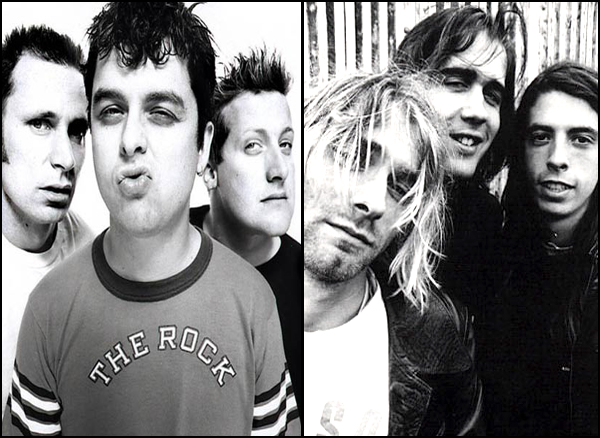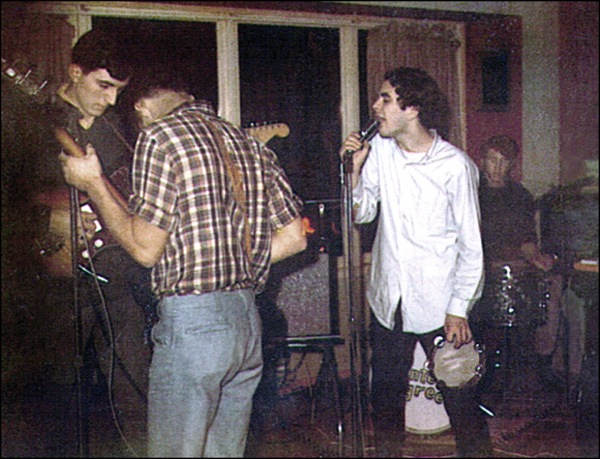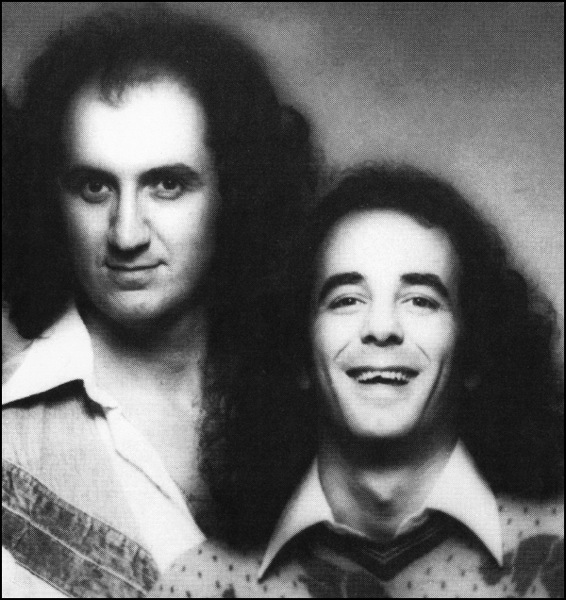UFO
It was pouring rain, and dark. There was a gap in the driver's side wiper blade that messed the windshield in a way that forced me to squint a bit. Larry Carlton's "Room 335" was blasting on the car stereo - the perfect driving song in the early eighties. It was around nine, on a weeknight and I was on my way to play a club in the valley. There were no cars ahead of me on the freeway. There hadn't been for a while. No tail lights to follow through the downpour.
As I rounded a corner I saw moving lights in the sky up ahead. They were above an upcoming overpass - off to the side, not over the freeway. I slowed and saw that the lights seemed to be connected in a line and ... I pulled over.
An internet-procured photo of something similar to the thing I saw
I got out of the car and stood in the rain, staring.
When I was eleven years old I was the editor of a newsletter called "The UFOEO Reporter". It was printed on the mimeograph machine at James Douglas Elementary school, thanks to Mr. Capon, the kind-hearted principal there. UFOEO stood for "Unidentified Flying Objects Enthusiasts Organization". There were about 15 members of the group, and none of them were in Vancouver, where I lived. They were also UFO enthusiasts, from places all around the world, and most of them had newsletters of their own. The idea was to report UFO activity in our locals and share the accumulated news through the mail by way of these hand-made publications.
I was also the youngest member of the "Vancouver Area Flying Saucer Club". My Mom and Dad took turns driving me to meetings in Kits, and I was warmly welcomed by an eccentric group of truth-seekers who thought I was just the cutest thing - until the night I stood up and mockingly questioned a presentation about two Australian boys and their suspicious close encounter of the third kind.
I was a curious kid and often drawn to themes that called from the fringes of accepted science. UFOs played a large role, but if the topic could be found in FATE Magazine (used copies of which were available at Ted's Book Bin, on nearby Fraser street) I was determined to remain open-minded about it. Open-mindedness was a badge of honour for me in those days.
The string of lights seemed to be circling around something, or to be attached to something that was circling around. The object floated, or "hovered" as UFO folks used to say, above the overpass - occasionally lilting slightly, as though suspended from a string. There was no sound. The rain soaked through my coat as I stood on the highway shoulder watching the lights going around, and the UFO going nowhere. It was about the size of a quarter held at arms length, but I couldn't sort out a dependable sense of scale. The rain didn't help.
Despite my youthful immersion in UFO culture, my first thoughts focused on a terrestrial explanation. I tried to imagine a balloon with lights tracing around it, and how big it would have to be if it was tethered to, or controlled from, the overpass. I was surprised to realize that the theoretical balloon would be roughly the width of a car. If this was an elaborate prank involving a very large prop, I thought, why pull it on a night like this? It was past nine on a weeknight, there was no traffic to speak of and it was raining hard.
Fate Magazine was a small format pulp magazine that dealt with UFOs, psychic abilities, ghosts and hauntings, cryptozoology, alternative medicine, life after death, mental telepathy, ancient astronauts, and, as Wikipedia goes on to say; "other paranormal topics". I was into all of that. My open mind was often strained, as it was at that final "Vancouver Area Flying Saucer Club" meeting (I'm sorry Mrs. Beaton), but I valiantly attempted to know the unknown and stay abreast of, or even a few steps beyond, an unfolding future.
A car pulled to the shoulder behind me and the driver got out.
"What is that?" he called to me.
I grinned in the dark at the idea that he expected a useful answer. I had been thinking, when he arrived, that if it wasn't right above the overpass and actually further away, it was very large. If it was a mile away, it was huge.
"A UFO, I guess." I called back.
The object began to move. Slowly it moved off to the south and, although it was hard to be sure, away from us. Soon it disappeared beyond the tree-line - either descending or getting further away - it's lights still tracing at the same speed.
As the night seemed to darken, buddy laughed awkwardly, said goodnight and got back into his car. He pulled away. Maybe it lasted five minutes all together. Maybe longer, I don't know.
Music began to overtake my interest in the paranormal. Alternate realities, real or unreal, were becoming increasingly inconsistent with the world I needed to live in. Also, some of it was starting to scare the shit out of me. I sold my paranormal library for $30. I bought forty-fives with the money. I started singing in a band.
I always believed that in exploring the unknown and otherworldly, I was learning about unfolding truths that would soon become self-evident to the world at large, and that much of what was called fringe science would be proven out over time and become real science. In the sixties, I was sure that proof of the existence of UFOs would arrive soon, and that we'd find out what they were and where they came from. Science would connect the dots and track down the facts.
But it never happened. The evidence failed to arrive.
So my trust shifted over time. Eventually, I came to agree with Marcello Truzzi, the founding co-chairman of the Committee for the Scientific Investigation of Claims of the Paranormal, who said:
"Extraordinary claims require extraordinary evidence." Or, put another way by the inimitable Christopher Hitchens; “What can be asserted without evidence can also be dismissed without evidence.”
I believe I still have an open mind. Where the truth is concerned, it's not over till it's over.
I also believe I saw something hovering above a freeway overpass, out in the valley, one dark and rainy night many years ago. I'll just never be able to tell anyone, for sure, what it was. Which is OK with me. One last quote. My all-time hero; scientist, teacher, raconteur and musician Richard Feynman said this:
"I can live with doubt, and uncertainty, and not knowing. I think it’s much more interesting to live not knowing than to have answers which might be wrong."
* I did not take a photo of the UFO. What I saw was similar to the internet-procured (and altered) shot above - only further away. About the size of a quarter, held at arm's length.





















